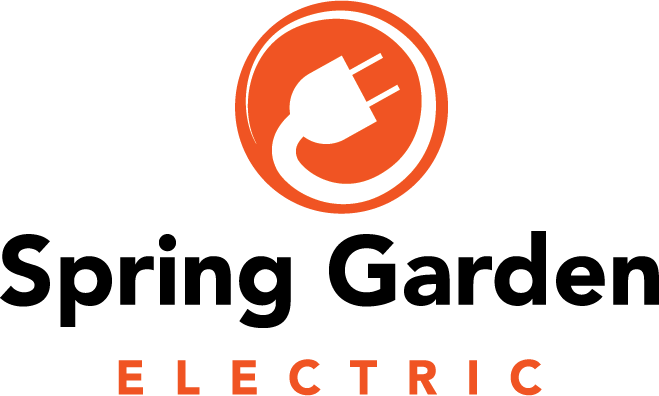At Spring Garden Electric LLC, we’re dedicated to providing you with the best service and making your experience as smooth as possible. Below you’ll find answers to some frequently asked electrical questions (FAQ). If you don’t find what you’re looking for, feel free to reach out to us directly. We’re always happy to help!
Check our Blog for more information and our Plug into an Expert series for in depth answers to some frequently asked electrical questions.
Disclaimer: The information provided is for general informational purposes only and should not be considered professional, legal or safety advice. While we strive to provide accurate and up-to-date insights, electrical work can be complex and dangerous. Always consult a professional for specific advice tailored to your situation. Spring Garden Electric LLC is not responsible for any actions taken based on the content of this site.
Frequently Asked Electrical Questions (FAQ)
General Electrical Questions
How do I know if my home needs an electrical upgrade?
Signs you may need to upgrade include frequent breaker trips, flickering lights, burning smells, warm outlets or outdated wiring (like knob and tube wiring). If your home is over 30 years old and you are experiencing issues, contact a reputable electrician.
Why do my lights flicker or dim randomly?
Flickering lights can be caused by loose connections, overloaded circuits or voltage fluctuations. If it happens frequently, call a reputable electrician to troubleshoot the issue.
What should I do if my circuit breaker keeps tripping?
A tripping breaker means it’s preventing an electrical overload or short circuit. Try unplugging devices from the circuit and resetting it. If it keeps happening, there may be a wiring issue that needs professional attention.
Can I do small electrical repairs myself?
Minor tasks like replacing light bulbs or resetting breakers are safe. However, wiring, panel upgrades, outlet installations or troubleshooting electrical issues should always be done by a professional electrician to avoid fire and safety risks.
Electrical Safety Questions
Why does my outlet feel warm to the touch?
Warm outlets may indicate loose wiring, an overloaded circuit or a failing outlet. This is a fire hazard. Stop using it immediately and have it checked.
What causes an electrical burning smell in my home?
A burning smell can come from overheating wires, faulty outlets or an overloaded circuit. Shut off power to the affected area and call an electrician immediately.
Do I need GFCI outlets in my home?
Yes, GFCI (Ground Fault Circuit Interrupter) outlets are required in wet areas like kitchens, bathrooms, basements and outdoor spaces to prevent electrical shocks.
Home Electrical Installations & Upgrades
How often should I replace my electrical panel?
Electrical panels typically last 25-40 years. However, they can last much longer if they are installed in a dry area and not exposed to moisture.
If you are experiencing breakers tripping often, your panel shows signs of water damage (such as rust) or can’t support modern appliances, it may be time for an upgrade.
How much does it cost to rewire a house?
Costs vary based on house size and complexity, but rewiring a home typically ranges from $3,500 to $10,000+. Contact us for a personalized quote.
Can I install a ceiling fan where a light fixture was?
Yes, but the electrical box must be fan rated to support the weight and movement of the fan. An electrician can upgrade the box and wiring safely.
What type of lighting is best for energy savings?
LED lighting is the most energy efficient option, using 75% less energy and lasting up to 25 times longer than incandescent bulbs.
Emergency Electrical Issues
What should I do if I lose power in part of my house?
First, check your breaker panel for tripped breakers and reset them if needed. If power isn’t restored, you may have faulty wiring or a utility issue. Call us for troubleshooting.
Is a buzzing sound from my electrical panel normal?
No, buzzing or crackling sounds can indicate loose connections, overloaded circuits or a failing breaker. This should be inspected immediately.
Do I need a surge protector for my home?
Yes, whole house surge protectors protect your appliances and electronics from power surges caused by lightning, utility issues or large appliances cycling on and off.
Electric Vehicle (EV) Charging
Can I install an EV charger at home?
Yes! Your electrical panel may need an upgrade to support it.
What size circuit do I need for an EV charger?
Most chargers require a 240V circuit with 40-50 amps. We can assess your home’s electrical capacity and install the right setup.



